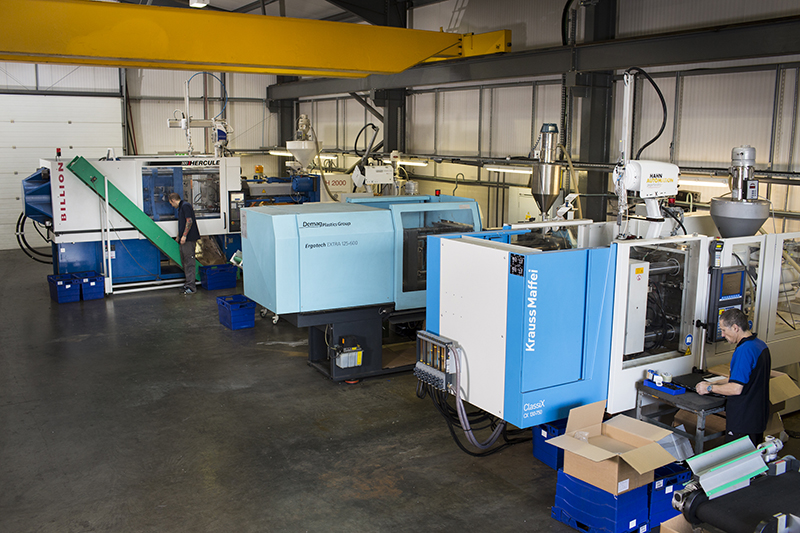
15 Jan Lean Manufacturing and the Resurgence of British Manufacturing
Lean manufacturing would now be considered normal practice for modern manufacturing businesses. The constant process of eliminating waste would seem like second nature and be sensible to implement by business owners. Though, this was not the case and it is relatively a modern concept adopted by manufacturers, steming from the lessons learnt from Henry Ford and the thinking of Sakichi Toyoda.
Kiichiro Toyoda founded Toyota, the worlds largest manufacturer, and the largest automotive company. In the 1930’s Kiichiro Toyoda implemented ‘Kaizen’, a Japanese philosophy of continuous improvement and efficiency, both from an individual standpoint and as an organisation.
Just In Time (JIT) a concept developed in the 1980’s is now commonly refered as the Toyota Production System (TPS) by which you make only what is needed, only when it is needed, and only in the amount that is needed. A second part of the TPS concept is ‘Jidoka’, meaning automation with a human touch.
As a general consensus mass manufacturing was originally conducted with large amounts of waste, with the emphasis to get as much product out as possible. In the case of Henry Ford we would look at automotive production in the Ford Motor Company. The Japanese at Toyota considered Ford’s practices wasteful and in-efficient. They did not see the logic in over-working machinery until it is broken, the consequence would be poor quality cars being manufactured by poorly maintained machines, essentially over producing inadequate product.
On the other hand, the Japanese wanted to build a culture around stopping to fix the problem first hand to ensure quality the first time. They also implemented ‘Kanban’ a means by which they never overproduced. Production being dependent on the consumers demand rather than the manufacturer producing as much as they can all the time. Which inevitably leads to large stores being needed which both increases the overheads for a company in terms of storing and needing more staff to monitor and work in the stores. Common sense would tell you that thousands of cars sat lying around and not being sold is wasteful. Everyday without sale their value depreciates, losing a business money and wasting resources.
Toyota’s implementation of ‘Kanban’ allowed them to produce cars in a sustainable manner, indifferent to previous methods which did lead to overproduction and the need for larges storage space, extra transport, added material costs and increased scrap. The two contrasting ideas are a ‘pull’ by the consumer, created by demand for a product and a ‘push’ by the manufacturer to give the consumer what they think they want.
Here at MPL, lean manufacturing is almost second nature and we’re sure it is the same in most other manufacturing businesses in the UK today. This actually highlights one of the key differences between manufacturing here in the UK and abroad in countries such as China, where predominantly a lot of manufacturing work has moved to. The underpinning reason behind this is price, British manufacturing has struggled to be competitive with the rest of the world when it comes to price. However, when you look at it more closely you could consider that we are actually far cheaper due to the quality of service this nation provides.
We like to think when you work with us, we create a relationship of which we assist in the design and tooling processes as well as the production of your product. One issue we face a lot of the time is pre-bought tools from other countries, done cheaply. Consequently the tool will cause issues at some point during production. This could be its ability to work in our machines, the finish it gives the product or even that it stops working after a degree of time. All of which mean we stop producing and have to allocate resources to fixing the tool to restart production for you. This is costly, and it takes time for us a business and our trained staff who could be occupied in more productive measure. The cost of repair and maintenance in the end will most likely outweigh the price of it being produced here in the UK.
The same can be said of the plastics industry which has seen some resurgence over the last few years in regards to industry coming back to the UK. With the British Plastics Federation (BPF) reporting on this back in 2014. Most recently. the Confederation of British Industry (CBI) reported that total order books had increased to a 29 year high in June, despite the wake of the General Election and the unprecedented waters of leaving the European Union.
We wouldn’t say the influence of lean manufacturing has seen this recent increase in order books. However, we believe the quality of British manufacturing is now being recognised once again and we are proud to be a part of it and will look to be an increasing contributor into the future.

